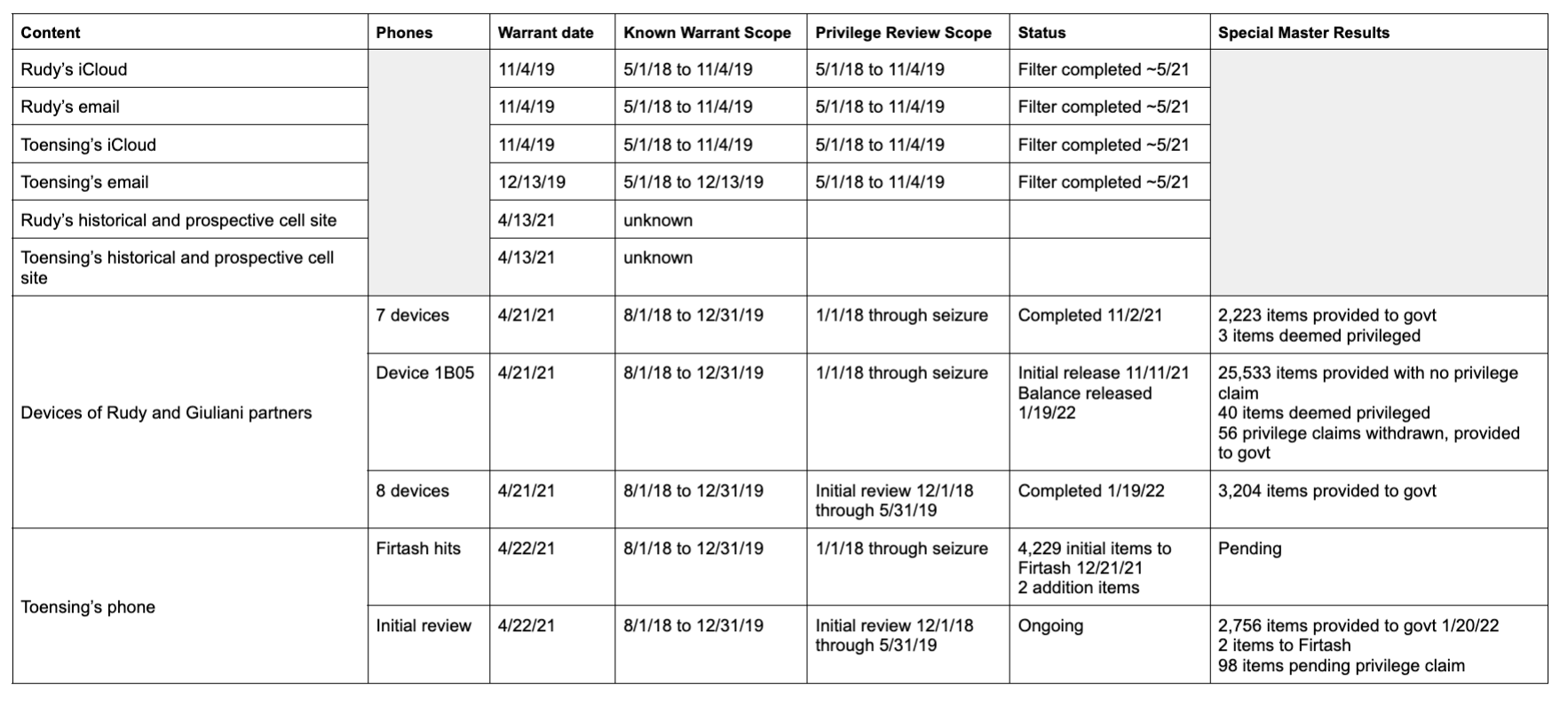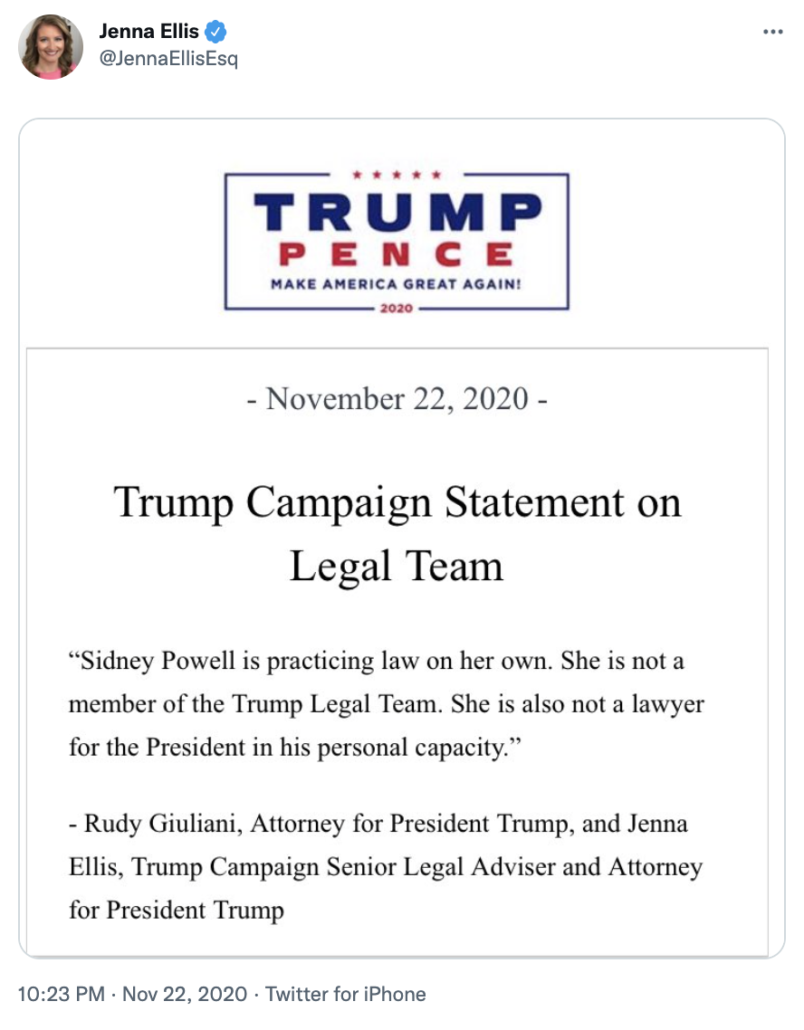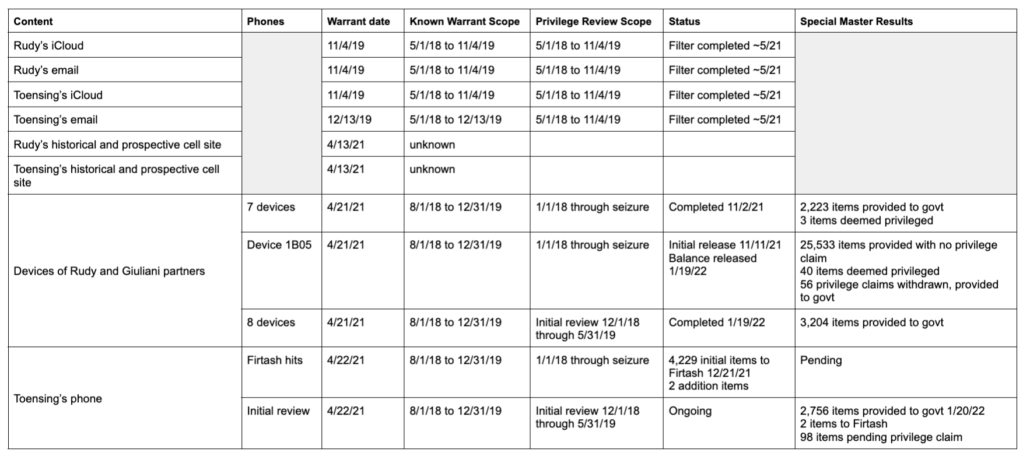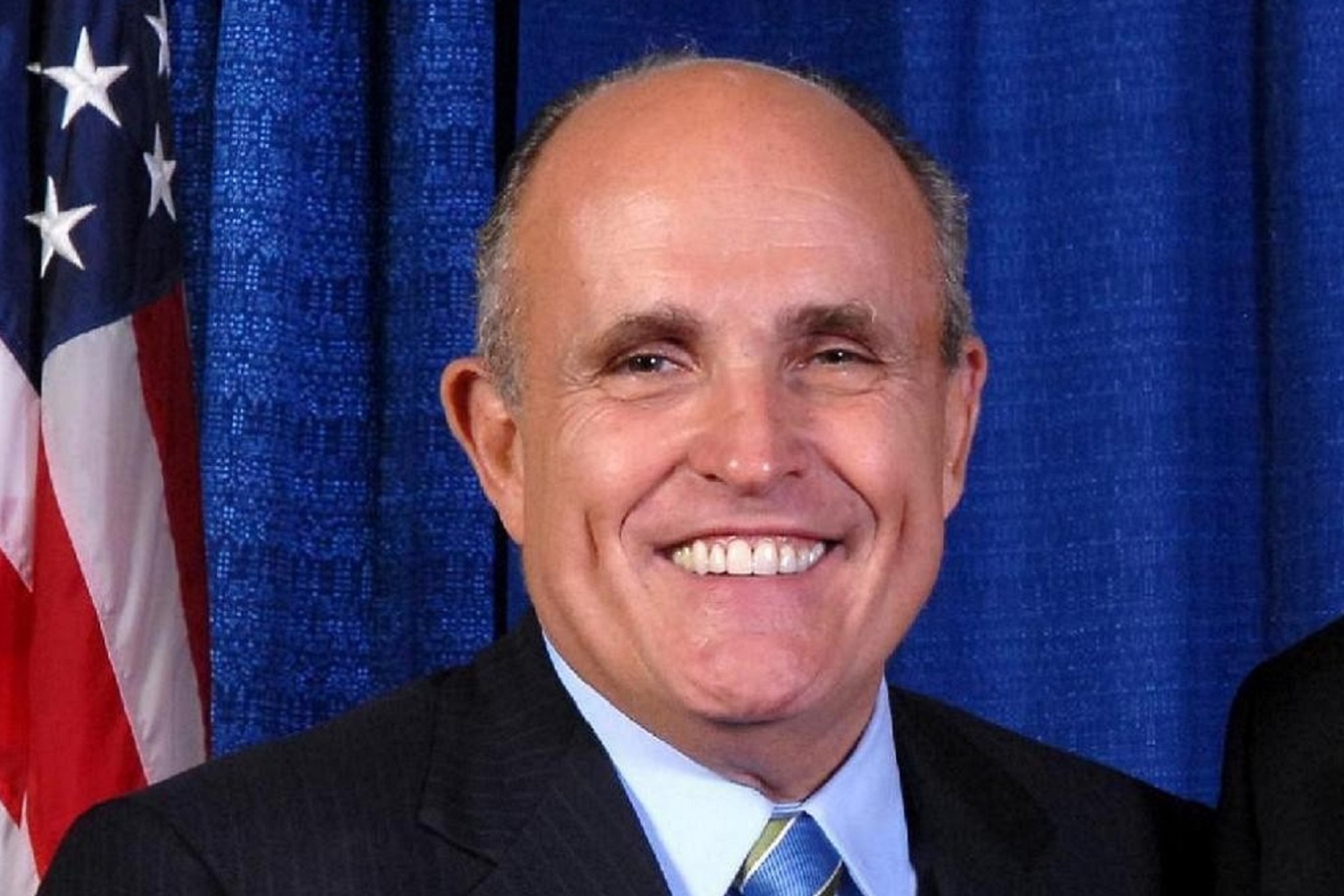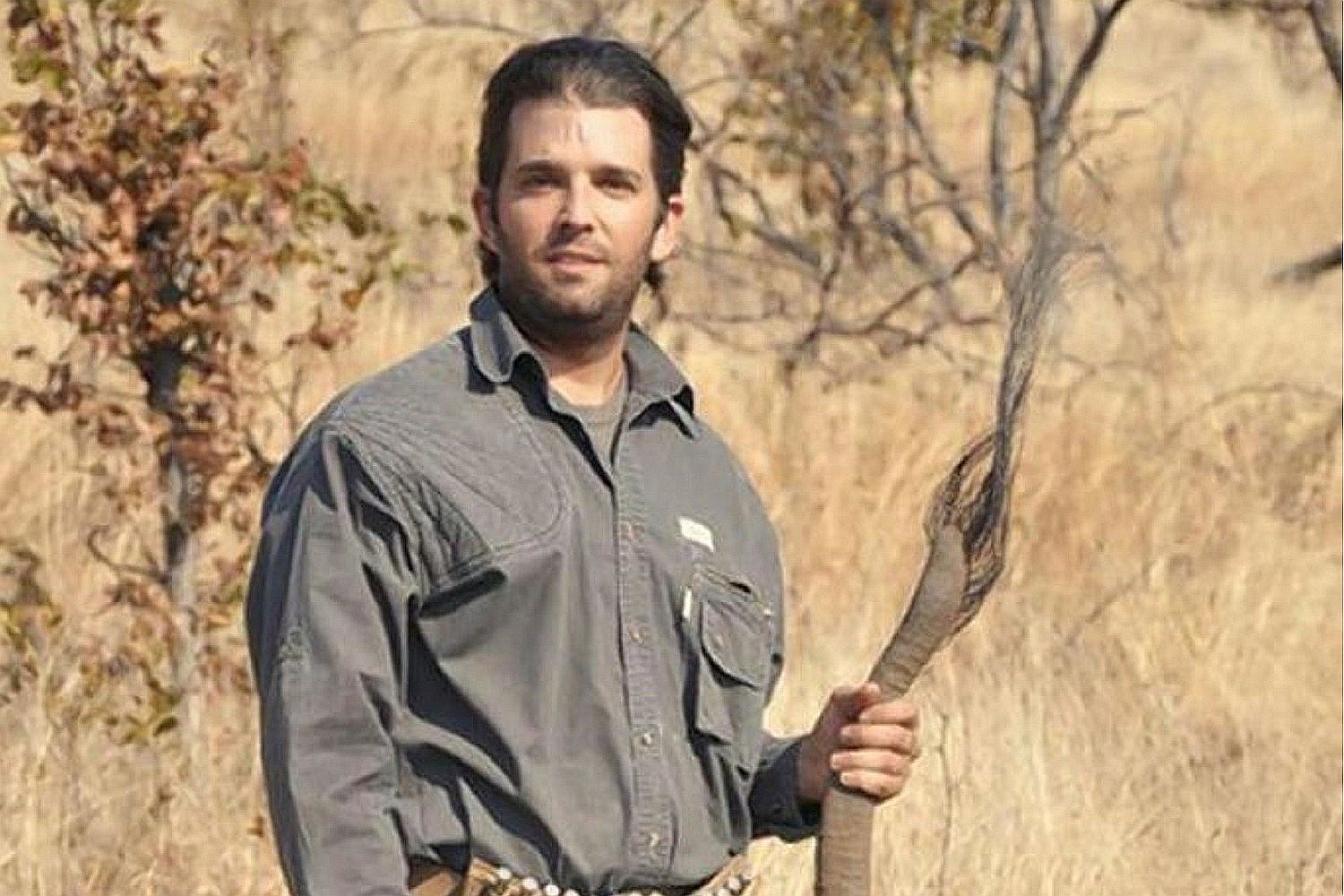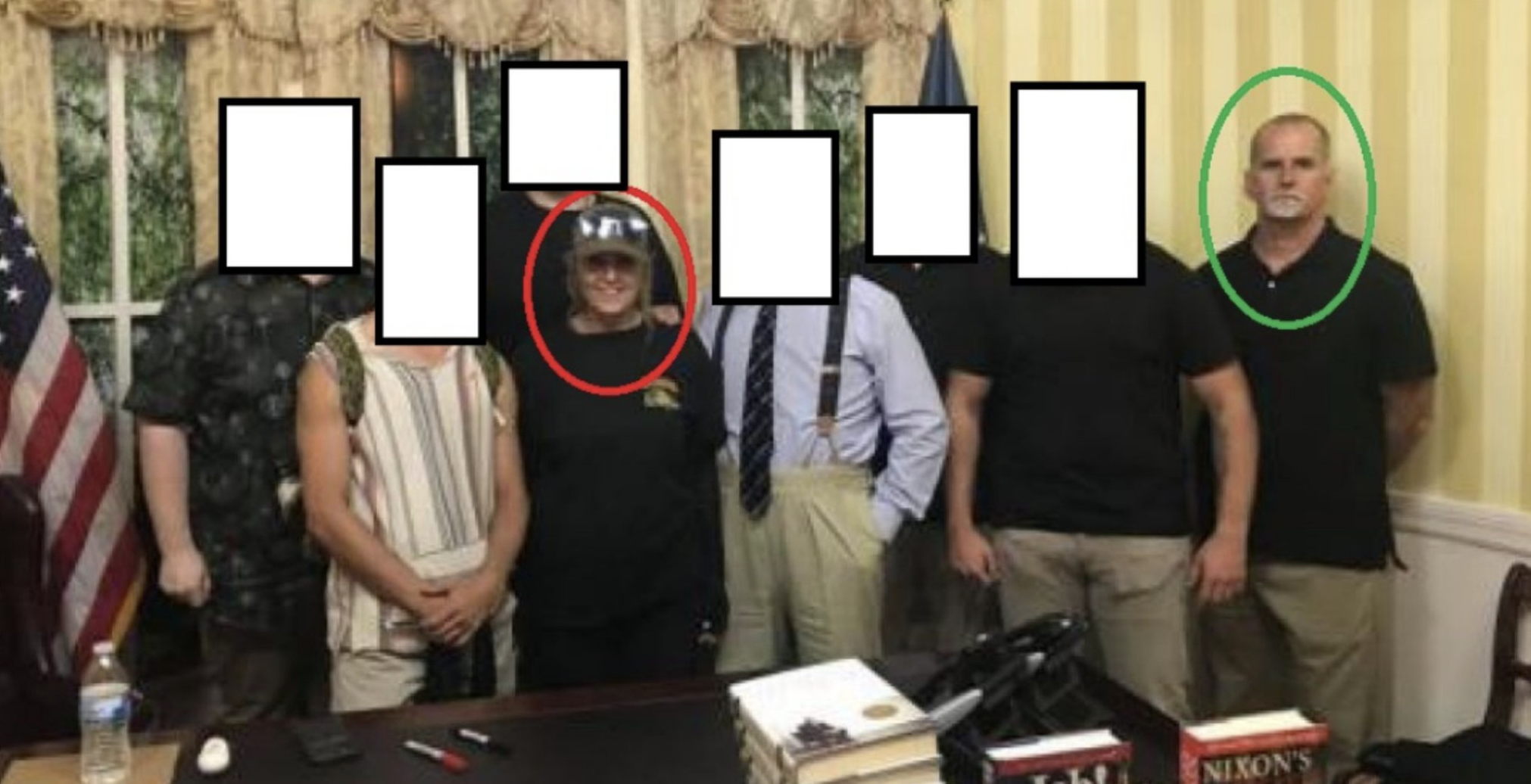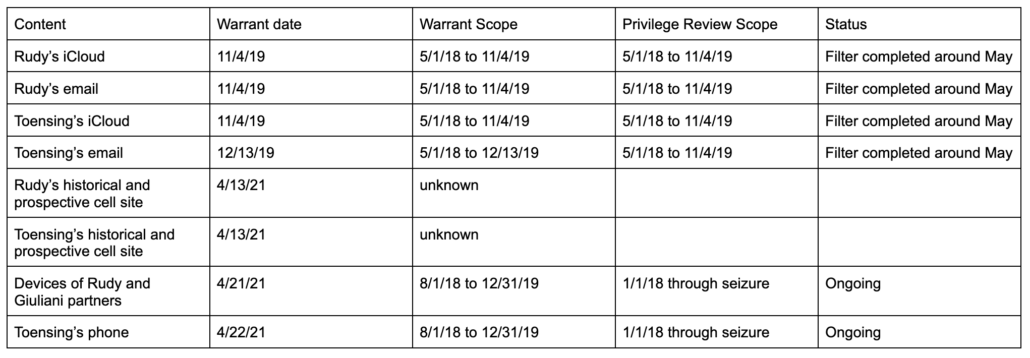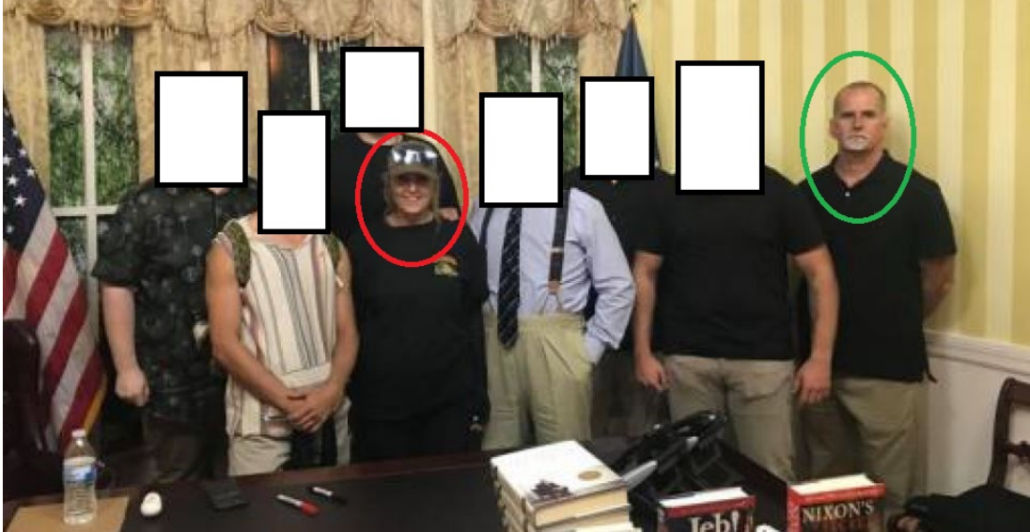In a Detroit Free Press article on the forged electoral certificate presented from Michigan, the state’s awesome Attorney General Dana Nessel explained why, after investigating for almost a year, she is now referring the matter to the Grand Rapids US Attorney’s Office.
Nessel told Maddow that her office has been evaluating charges for almost a year but decided Thursday to refer the matter to the U.S. Attorney’s Office for the Western District of Michigan.
“We think this is a matter that is best investigated and potentially prosecuted by the feds,” Nessel said.
The signatories of the failed attempt to award Michigan’s Electoral College votes to Trump include Michigan GOP co-chair Meshawn Maddock, national Republican committeewoman Kathy Berden and Michigan GOP grassroots vice chair Marian Sheridan, among other pro-Trump activists in the party.
The decision does not preclude possible charges against the Republicans who falsely claimed that they cast Michigan’s Electoral College votes for Trump, Nessel said. And her office might still bring charges, she added.
“Under state law, I think clearly you have forgery of a public record, which is a 14-year offense and election law forgery, which is a five-year offense,” Nessel said.
“But, obviously, this is part of a much bigger conspiracy and our hope is that the federal authorities and the Department of Justice and United States Attorney General Merrick Garland will take this in coordination with all the other information they’ve received and make an evaluation as to what charges these individuals might (face),” she said.
Consider what happened to lead to this federal criminal referral. After electors sent fake certifications to the National Archives, NARA then sent them to Michigan Secretary of State Jocelyn Benson and Arizona Secretary of State Katie Hobbs.
Vice President Mike Pence the winners of both Michigan and Arizona and their electors after the 2020 election. Public records requests show the secretaries of state for those states sent those certificates to the Jan. 6 panel, along with correspondence between the National Archives and state officials about the documents.
Spokespeople for the Michigan and Arizona secretaries of state declined to comment on the documents. The offices confirmed that Michigan Secretary of State Jocelyn Benson and Arizona Secretary of State Katie Hobbs, both Democrats, and their staff met with the panel in November.
“They mostly discussed election administration in Arizona, the 2020 elections, threats/harassment directed toward the office, and the Cyber Ninja’s partisan ballot review,” said Hobbs’ spokesperson C. Murphy Hebert.
Benson and her staff took questions from the committee on the 2020 election and events leading up to the Jan. 6 riot, according to Tracy Wimmer, a spokesperson for Benson.
The National Archives sent emails to the Arizona secretary of state on Dec. 11, 2020, passing along the forged certificates “for your awareness” and informing the state officials the Archives would not accept them.
Arizona then took legal action against at least one of the groups who sent in the fake documents, sending a cease and desist letter to a pro-Trump “sovereign citizen” group telling them to stop using the state seal and referring the matter to the state attorney general.
“By affixing the state seal to documents containing false and misleading information about the results of Arizona’s November 3, 2020 General Election, you undermine the confidence in our democratic institutions,” Hobbs wrote to one of the pro-Trump groups.
Arizona took immediate action; given Nessel’s comments, Benson appears to have referred the matter to Nessel. Some of these details were made public last March after American Oversight obtained them. But after the January 6 Committee put them all in context and focused renewed attention to how the fake certificates fit into a larger effort, it led Nessel to hold off on pursuing potential 14-year charges against some of the most powerful Republicans in the state, and instead to formally refer the investigation to the Feds, based on the logic that the obviously coordinated effort to forge fake electoral certificates is part of a larger whole.
This is not dissimilar from how legal action from Florida’s charity regulator led to state action as well as a grand jury investigation into Sidney Powell’s grifting.
For months, a federal investigation running out of Washington, D.C., has been demanding documents and asking potential witnesses questions about Powell, according to three people familiar with the matter. Similarly, a separate investigation into Powell’s anti-democratic activities took place in the Sunshine State earlier this year—and has already produced results, and punished Powell and her far-right group.
The federal probe, which has not been previously reported, is examining the finances of Defending the Republic, an organization founded by Powell to fund her “Kraken” lawsuits to overturn the 2020 election, the sources said.According to two of the people familiar with the matter, a grand jury was empaneled, and subpoenas and documents requests have gone out to multiple individuals as recently as September.
Defending the Republic’s finances have already prompted an investigation and a settlement with Florida’s charity regulator. The group paid a $10,000 fine in September as part of a settlement agreement related to its solicitation of contributions and failure to register as a charitable organization in the state.
[snip]
Defending the Republic’s finances first attracted the scrutiny of regulators in Florida shortly after Powell founded the group in November 2020 when authorities received a complaint and subsequently issued a subpoena to internet hosting service GoDaddy for information about the group’s website.
In a June press conference, Florida Agriculture Commissioner Nikki Fried said Defending the Republic was “found to be soliciting contributions from the State of Florida or from persons within the State of Florida” on the internet “without having filed in the State of Florida” as a charitable organization.”
On Aug. 24, Defending the Republic paid a $10,000 fine as part of a settlement agreement with Florida authorities over its fundraising.
As part of that agreement, Powell’s group agreed to register as a charity in Florida and submitted a projected budget of over $7 million. The settlement agreement also required Defending the Republic to submit an audited financial statement for the group’s operations between December 2020 and July 2021 by Nov. 30, including a balance sheet and a list of expenses and revenue.
Meanwhile, Fulton County’s DA, Fani Willis, has been investigating Trump’s call to pressure Brad Raffensperger to cheat and will reportedly make a prosecutorial decision in the months ahead.
The prosecutor weighing whether Donald Trump and others committed crimes by trying to pressure Georgia officials to overturn Joe Biden’s presidential election victory said a decision on whether to bring charges could come as early as the first half of this year.
Fulton County District Attorney Fani Willis said in an interview with The Associated Press last week that her team is making solid progress, and she’s leaning toward asking for a special grand jury with subpoena power to aid the investigation.
“I believe in 2022 a decision will be made in that case,” Willis said. “I certainly think that in the first half of the year that decisions will be made.”
[snip]
Willis declined to speak about the specifics, but she confirmed that the investigation’s scope includes — but is not limited to — a Jan. 2, 2021, phone call between Trump and Georgia Secretary of State Brad Raffensperger, a November 2020 phone call between U.S. Sen. Lindsey Graham and Raffensperger, the abrupt resignation of the U.S. attorney in Atlanta on Jan. 4, 2021, and comments made during December 2020 Georgia legislative committee hearings on the election.
Regardless of what Willis decides, she can also refer actions to the Feds because it, like the forged electoral certifications, “is part of a much bigger conspiracy.”
The point is (besides that we should be grateful that Democrats elected a lot of smart, fearless women in recent years) that there are lots of moving parts to this “much bigger conspiracy.” And all those moving parts have, as an option, referring their investigative findings to DOJ to drop it into the “much bigger conspiracy.”
So during the year when DOJ has been laying what Merrick Garland called “the evidentiary foundation for more complex cases,” states and local authorities have been conducting investigations that can be joined to that evidentiary foundation.
These are all parts of a much bigger conspiracy.
All these moving parts require coordination, however, or “deconfliction,” both in an effort to maximize cross-fertilization between the investigations and to ensure no investigation screws up the criminal investigations that might lead to real consequences. While there has been no reporting on how this is being done at DOJ, we can be sure it is, not least because DOJ and the Committee are muddling through the Executive Privilege questions in tandem.
Robert Mueller, for example, had his own congressional liaison, and referrals from the Senate Intelligence Committee led directly to plea deals with Sam Patten and Michael Cohen that, in turn, led to information both (and in the latter case, Trump’s lawyers) had shielded from the Committees.
Adam Schiff, now a member on the Select Committee, knows well that Mueller also used a House Intelligence Committee interview with Roger Stone as a basis for an obstruction prosecution against Trump’s rat-fucker. While the details are less clear, I also suspect that Steve Bannon’s interviews with HPSCI served to tee up the fruitful grand jury appearance for him in January 2019 about which Stone is still furious.
Liz Cheney brings a different knowledge base to the challenge of deconfliction. Her dad played a central role in screwing up the Special Prosecutor investigation into Iran-Contra by offering key witnesses immunity. He’s one reason why congressional committees hoping to preserve criminal investigations tread carefully. Hopefully, Congresswoman Cheney can apply lessons learned from her evil genius father to the forces of good on the Select Committee. She has the most to lose if this Committee doesn’t succeed.
As noted above, the most visible sign of this deconfliction has come on privilege reviews. In July, at the same time that DOJ established their contact policy fire-walling President Biden from learning about any ongoing investigations, DOJ got privilege waivers for former DOJ personnel to appear before Congress. After that, when the Select Committee, as an independent branch of government that is also fire-walled from the criminal investigation, asked for investigative materials from the Archives, Biden conducted privilege reviews of that material and waived privilege over much, but not all, of it. If and when that material is released, however, it would be available to anyone with a need, including DOJ.
In fact, the back and forth between the Committee and DOJ has likely already made investigative materials available to DOJ. That’s because, after the Select Committee made it clear Mark Meadows had violated the Presidential Records Act with regards to some of the materials he shared with the committee, Meadows undertook efforts to fix that. To the extent he is able to provide his personal emails and Signal texts to NARA (some of the latter are likely are unavailable), that material would become available to DOJ without subpoenaing Meadows. And to the extent this process reveals that materials of investigative interest to a grand jury were deleted when Meadows obtained a new phone, it will give DOJ reason to use legal process to either hold Meadows accountable for obstruction, or reason to get it from others, like Jim Jordan. To say nothing of the fact that Meadows can’t prevent DOJ from subpoenaing the call records that led him to renege on efforts to cooperate with the January 6 Committee. That’s why I doubt DOJ will hold Meadows in criminal contempt, because they would be better served to get that information — and coerce cooperation, if he chooses that route — via their own legal process. Effectively, then, Bennie Thompson wrote a rough draft of a warrant affidavit for the FBI.
It’s in the subpoenas for witnesses, however, that I’m most curious about with regards to deconfliction between the DOJ and Select Committee investigation. Consider: There are two Trump associates who were key in sowing the Big Lie, Rudy Giuliani and Sidney Powell, who are known to be under criminal investigation right now. That’s a topic the Select Committee is focusing closely on. But in spite of the fact that Bennie Thompson has expressed an interest in interviewing Rudy, thus far Thompson remains coy about how he’ll reach out to get Rudy’s testimony. There has been no public mention of getting Powell’s testimony or, for that matter, Lin Wood or Patrick Byrne, who — based on public reports — are part of that grifting investigation as well (and Byrne would be interesting of his own accord because he was honey-potted by a Russian spy). And for that matter, at least by the time he sued the committee, Mike Flynn’s call records hadn’t been subpoenaed either.
I’m equally interested in the timing of the Stewart Rhodes subpoena: November 23. That was after DOJ obtained an arrest warrant for James Beeks, the last member of The Stack, on November 18, but the day before they arrested him. By that point (probably long before), DOJ had to have known they were going to pursue sedition charges against him. But for some reason, they held off on the sedition charges when they superseded the Oath Keepers indictment on December 1 (before they otherwise would have needed to charge Beeks) to include him and tweak the Civil Disorder language in the indictment. There may be very good reasons they needed to wait: They needed to find Rhodes; they needed to finish exploiting his phone; they needed to resolve how they were going to treat the field commander, Mike Simmons, whose status in the investigation changed pretty dramatically between the December indictment and the Sedition one. But in that period while they held off, the Select Committee tested whether Rhodes wanted to go lie under oath to Congress. He declined.
It was worth a shot!
I find it equally curious that the Select Committee chose to target colleagues who played a more ambivalent role in the insurrection on January 6, rather than people like Paul Gosar or Mo Brooks, who have clear ties to organizers and other insurrectionists.
Similarly, I share Justin Hendrix’s curiosity why — especially in the wake of his article showing that The Donald isn’t being used in FBI affidavits — the Select Committee isn’t pursuing the role of the post-Reddit social media site in the insurrection, even while they expand their prior requests on more traditional social media.
In short, DOJ and the Select Committee are necessarily deconflicting their efforts, even if the Committee remains fire-walled from what DOJ has planned in the weeks ahead. But understanding that raises interesting questions about the Select Committee choices.
These pieces are all parts of a much bigger conspiracy. And until we see all those pieces we won’t see how they all work together.
But there are increasing signs that others are putting those pieces together.
Update: On January 18, the committee subpoenaed Rudy, Sidney Powell, and two others.
Update: On January 28, J6 subpoenaed the fake electors.
Select Committee Witness Requests
- Michael A. Roman
- Gary Michael Brown
- Douglas V. Mastriano
- Laura Cox
- Mark W. Finchem
- Kelli Ward
- Nancy Cottle, Chairperson, Arizona
- Loraine B. Pellegrino, Secretary, Arizona
- David Shafer, Chairperson, Georgia
- Shawn Still, Secretary, Georgia
- Kathy Berden, Chairperson, Michigan
- Mayra Rodriguez, Secretary, Michigan
- Jewll Powdrell, Chairperson, New Mexico
- Deborah W. Maestas, Secretary, New Mexico
- Michael J. McDonald, Chairperson, Nevada
- James DeGraffenreid, Secretary, Nevada
- Bill Bachenberg, Chairperson, Pennsylvania
- Lisa Patton, Secretary, Pennsylvania
- Andrew Hitt, Chairperson, Wisconsin
- Kelly Ruh, Secretary, Wisconsin
- Nicholas J. Fuentes
- Patrick Casey
- Rudolph Giuliani
- Jenna Ellis
- Sidney Powell
- Boris Epshteyn
- Kevin McCarthy
- Andy Surabian
- Arthur Schwartz
- Ross Worthington
- Sean Hannity
- Jim Jordan
- Scott Perry
- Phil Waldron
- Robert “Bobby” Peede, Jr.
- Max Miller
- Brian Jack
- Bryan Lewis
- Ed Martin
- Kimberly Fletcher
- Proud Boys International, L.L.C.
- Henry “Enrique” Tarrio
- Oath Keepers
- Elmer Stewart Rhodes
- Robert Patrick Lewis/1st Amendment Praetorian
- Duston Stockton
- Jennifer Lawrence
- Taylor Budowich
- Roger Stone
- Alex Jones
- Nicholas Luna
- Molly Michael
- Benjamin Williamson
- Christopher Liddell
- John McEntee
- Keith Kellogg
- Kayleigh McEnany
- Stephen Miller
- Cassidy Hutchinson
- Kenneth Klukowski
- William Stepien
- Jason Miller
- Angela McCallum
- John Eastman
- Michael Flynn
- Bernard Kerik
- Jeffrey Clark
- Ali Alexander
- Nathan Martin
- Stop the Steal, LLC
- Amy Kremer, founder and Chair of WFAF.
- Kylie Kremer, founder and Executive Director of WFAF.
- Cynthia Chafian, submitted the first permit application on behalf of WFAF for the January 6th rally, and founder of the Eighty Percent Coalition.
- Caroline Wren, listed on permit paperwork for the January 6th rally as “VIP Advisor.”
- Maggie Mulvaney, listed on permit paperwork for the January 6th rally as “VIP Lead.”
- Justin Caporale, of Event Strategies, Inc., listed on permit paperwork for the January 6th rally as “Project Manager.”
- Tim Unes, of Event Strategies, Inc., listed on permit paperwork for the January 6th rally as “Stage Manager.”
- Megan Powers, of MPowers Consulting LLC, listed on permit paperwork for the January 6th rally as “Operations Manager for Scheduling and Guidance.”
- Hannah Salem, of Salem Strategies LLC, listed on permit paperwork for the January 6th rally as “Operations Manager for Logistics and Communications.”
- Lyndon Brentnall, of RMS Protective Services, listed on permit paperwork for the January 6th rally as “On-Site Supervisor.”
- Katrina Pierson, former Trump campaign official, reportedly involved in the organization of the January 5th and 6th rallies and was in direct communication with the former President about the rallies
- Mark Meadows
- Daniel Scavino
- Kashyap Patel
- Stephen Bannon


